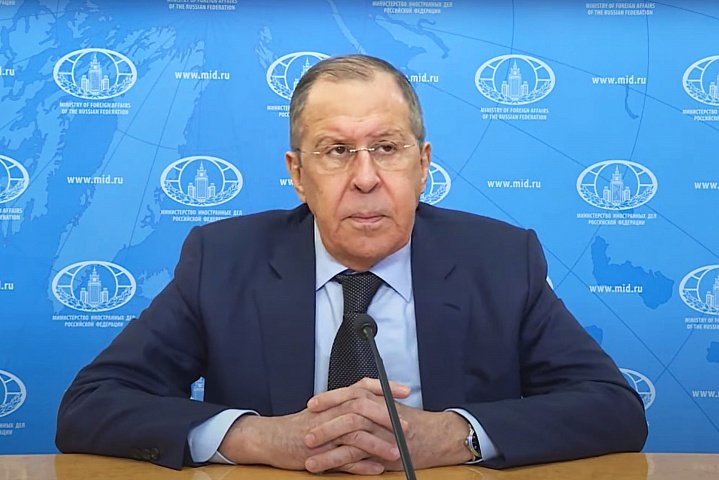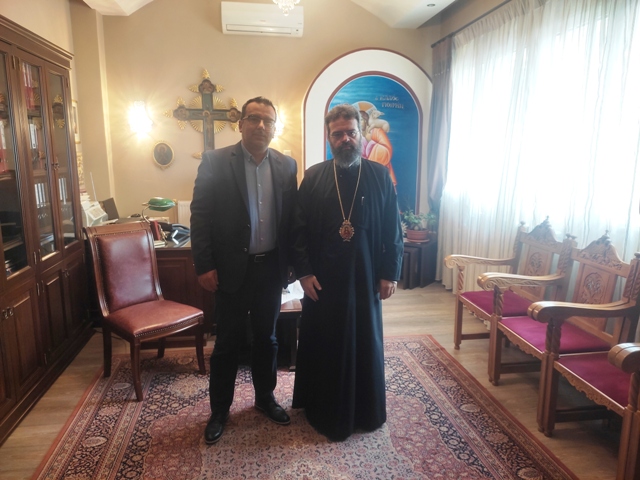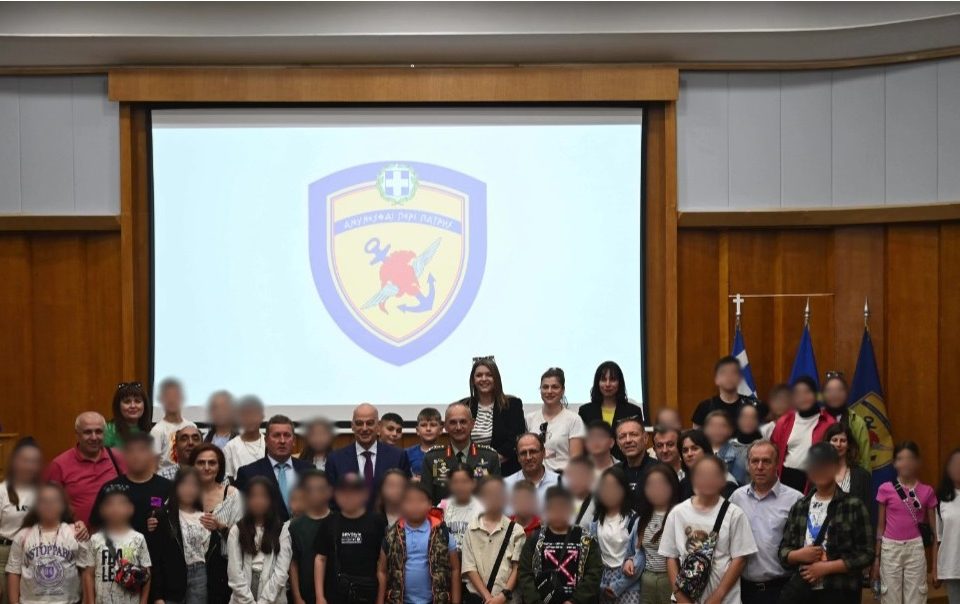Ο υπουργός Εξωτερικών της Ρωσίας Σεργκέι Λαβρόφ επιβεβαίωσε ότι απηύθυνε επίσημο αίτημα σε όλους τους ομολόγους του, υπουργούς Εξωτερικών των χωρών-μελών του ΟΑΣΕ, οι οποίες έχουν συνυπογράψει τις διακηρύξεις της Κωνσταντινούπολης το 1999 και της Αστανά (Καζακστάν) το 2010, ώστε να εξηγήσουν «πώς σκοπεύουν να υλοποιήσουν υπό τις παρούσες ιστορικές συνθήκες τις υποχρεώσεις, τις οποίες ανέλαβαν οι χώρες τους σε ανώτατο επίπεδο».
«Το 2010 στην Αστανά και προηγουμένως στην Κωνσταντινούπολη το 1999 όλοι οι πρόεδροι και οι πρωθυπουργοί των χωρών του ΟΑΣΕ υπέγραψαν κάτω από ένα πακέτο, στο οποίο περιέχονταν οι αλληλοσυνδεόμενες αρχές της κατοχύρωσης του αδιαίρετου της ασφάλειας», δήλωσε ο Ρώσος υπουργός, σημειώνοντας ότι «η Δύση αποσπά από αυτό το πακέτο μόνο ένα σύνθημα: ότι κάθε χώρα έχει το δικαίωμα να επιλέγει συμμάχους και στρατιωτικές συμμαχίες, όμως εκεί αυτό το δικαίωμα διατυπώνεται υπό τη συνθήκη και την υποχρέωση κάθε χώρας, την οποία υπέγραψαν και οι δυτικοί: να μην ενισχύεις τη δική σου ασφάλεια εις βάρος της ασφάλειας των άλλων».
«Η Δύση στους εξορκισμούς της ότι η πολιτική των ανοιχτών θυρών του ΝΑΤΟ είναι ιερή και ουδείς μπορεί να απαγορεύσει στην Ουκρανία να ενταχθεί στη συμμαχία, ότι αυτό θα το αποφασίσει η Ουκρανία, σκοπίμως και ανοιχτά αποφεύγει ακόμη και την αναφορά στο δεύτερο μέρος της υποχρέωσης», εκτίμησε ο Ρώσος υπουργός Εξωτερικών, τονίζοντας ότι «πολύ περισσότερο όταν ο Ζ. Μπορέλ και ο Α. Μπλίνκεν και πολλοί άλλοι συνάδελφοί μας μιλούν για την αναγκαιότητα να ακολουθούμε τις συμφωνημένες αρχές στο πλαίσιο της αρχιτεκτονικής ασφάλειας στον ευρωατλαντικό χώρο, κανείς από αυτούς δεν αναφέρει ούτε τη Διακήρυξη της Κωνσταντινούπολης, ούτε τη Διακήρυξη της Αστανά.
Αναφέρουν μόνο την Τελική Πράξη του Ελσίνκι και τη Χάρτα του Παρισιού για τη νέα Ευρώπη του 1990, όπου δεν υπάρχει η υποχρέωση να μην ενισχύεις τη δική σου ασφάλεια εις βάρος των άλλων. Στα επόμενα έγγραφα του ΟΑΣΕ η Ρωσία επέμεινε να συμπεριληφθούν αυτές οι υποχρεώσεις».
Κατά τη Μόσχα τα συγκεκριμένα ερωτήματα είναι «ζητήματα αρχής» και πριν συζητηθούν άλλες «πρακτικές πλευρές της ευρωπαϊκής ασφάλειας», η ρωσική διπλωματία θα επιδιώξει να διευκρινίσει για το νόημα της υπογραφής των ηγετών της Ευρώπης, αλλά και του προέδρου των ΗΠΑ κάτω από τις ανωτέρω Διακηρύξεις και «να μην επιτρέψει στη Δύση να υπεκφύγει».
Εάν οι υπογραφές τέθηκαν, «με αφετηρία ότι ποτέ η Ρωσία δεν θα κατορθώσει να πετύχει το υπεσχημένο σε αυτά τα έγγραφα, πρέπει να το ομολογήσουν. Αυτή θα είναι άλλη μια ομολογία μετά την υπενθύμισή μας για τις προφορικές υποσχέσεις του 1990 ότι δεν θα διευρυνθεί το ΝΑΤΟ, όταν μετά μας απαντούσαν ότι κάθε άλλο παρά αυτό δεν εννοούσαν, ότι ήθελαν να μας εξαπατήσουν, ότι ενεργούσαν βιαστικά, ότι δήθεν εκεί υπήρχαν πιο σημαντικά ζητήματα», υποστήριξε ο Σ.Λαβρόφ.
Ο Ρώσος υπουργός δεν παρέλειψε, πάντως να επαναλάβει την τοποθέτηση του προέδρου της Ρωσίας Βλαντίμιρ Πούτιν, ότι «εάν οι προσπάθειές μας να συμφωνήσουμε για τις αμοιβαία αποδεκτές αρχές κατοχύρωσης της ασφάλειας στην Ευρώπη δεν δώσουν αποτέλεσμα, τότε θα λάβουμε απαντητικά μέτρα», ενώ διαχώρισε σαφώς τις γραπτές απαντήσεις της κυβέρνησης των ΗΠΑ και του ΝΑΤΟ, αναφέροντας ειδικότερα ότι «η αμερικανική απάντηση συγκρινόμενη με το χαρτί που μας έστειλαν από το ΝΑΤΟ, αποτελεί σχεδόν υπόδειγμα διπλωματικής ευπρέπειας, ενώ η απάντηση από το ΝΑΤΟ είναι τόσο ιδεολογικοποιημένη, αποπνέει τόσο την εξαιρετικότητα της Βορειοατλαντικής Συμμαχίας, της ειδικής του αποστολής και προορισμού, ώστε αισθάνθηκα λίγο ντροπή για εκείνους, που έγραψαν αυτά τα κείμενα».
Text of the Minister of Foreign Affairs of Russia Mr. Sergey Lavrov`s written message on Indivisibility of Security addressed to the Heads of Foreign / External Affairs Ministers / Secretaries of the US, Canada and several European countries

You are well aware that Russia is seriously concerned about increasing politico-military tensions in the immediate vicinity of its western borders. With a view to avoiding any further escalation, the Russian side presented on 15 December 2021 the drafts of two interconnected international legal documents – a Treaty between the Russian Federation and the United States of America on Security Guarantees and an Agreement on Measures to Ensure the Security of the Russian Federation and Member States of the North Atlantic Treaty Organization.
The U.S. and NATO responses to our proposals received on 26 January 2022 demonstrate serious differences in the understanding of the principle of equal and indivisible security that is fundamental to the entire European security architecture. We believe it is necessary to immediately clarify this issue, as it will determine the prospects for future dialogue.
The Charter for European Security signed at the OSCE Summit in Istanbul in November 1999 formulated key rights and obligations of the OSCE participating States with respect to indivisibility of security. It underscored the right of each participating State to be free to choose or change its security arrangements including treaties of alliances, as they evolve, as well as the right of each State to neutrality. The same paragraph of the Charter directly conditions those rights on the obligation of each State not to strengthen its security at the expense of the security of other States. It says further that no State, group of States or Organization can have any pre-eminent responsibility for maintaining peace and stability in the OSCE area or can consider any part of the OSCE area as its sphere of influence.
At the OSCE Summit in Astana in December 2010, the leaders of our nations approved a declaration that reaffirmed this comprehensive package of interconnected obligations.
However, the Western countries continue to pick up out of it only those elements that suit them, and namely – the right of States to be free to choose alliances for ensuring exclusively their own security. The words ‘as they evolve’ are shamefacedly omitted, because this provision was also an integral part of the understanding of ‘indivisible security’, and specifically in the sense that military alliances must abandon their initial deterrence function and integrate into the all-European architecture based on collective approaches, rather than as narrow groups. The principle of indivisible security is selectively interpreted as a justification for the ongoing course toward irresponsible expansion of NATO.
It is revealing that Western representatives, while expressing their readiness to engage in dialogue on the European security architecture, deliberately avoid making reference to the Charter for European Security and the Astana Declaration in their comments. They mention only earlier OSCE documents, particularly often – the 1990 Charter of Paris for a New Europe that does not contain the increasingly ‘inconvenient’ obligation not to strengthen own security at the expense of the security of other States. Western capitals also attempt to ignore a key OSCE document – the 1994 Code of Conduct on Politico-Military Aspects of Security, which clearly says that the States will choose their security arrangements, including membership in alliances, ‘bearing in mind the legitimate security concerns of other States’.
It will not work that way. The very essence of the agreements on indivisible security is that either there is security for all or there is no security for anyone. The Istanbul Charter provides that each OSCE participating State has equal right to security, and not only NATO countries that interpret this right as an exceptional privilege of membership in the ‘exclusive’ North Atlantic club.
I will not comment on other NATO guidelines and actions that reflect the aspiration of the ‘defensive’ bloc to military supremacy and the use of force bypassing the prerogatives of the U.N. Security Council. Suffice it to say that such actions contravene the fundamental all-European obligations including the commitments under the aforementioned documents to maintain only such military capabilities that are commensurate with individual or collective security needs, taking into account the obligations under international law, as well as the legitimate security interests of other States.
Discussing the present situation in Europe, our colleagues from the United States, NATO and the European Union make constant appeals for ‘de-escalation’ and call on Russia to ‘choose a path of diplomacy’. We want to remind: we have been moving along that path for decades. The key milestones, such as the documents of the Istanbul and Astana summits, are exactly the direct result of diplomacy. The very fact that the West now tries to revise to its benefit these diplomatic achievements of the leaders of all OSCE countries raises serious concern. The situation demands a frank clarification of positions.
We want to receive a clear answer to the question how our partners understand their obligation not to strengthen their own security at the expense of the security of other States on the basis of the commitment to the principle of indivisible security. How specifically does your Government intend to fulfil this obligation in practical terms in the current circumstances? If you renege on this obligation, we ask you to clearly state that.
Without having full clarity on this key issue related to the interconnection of rights and obligations approved at the highest level, it is impossible to ensure the balance of interests embodied in the instruments of the Istanbul and Astana summits. Your response will help to better understand the extent of the ability of our partners to remain faithful to their commitments, as well as the prospects for common progress toward decreasing tensions and strengthening European security.
We look forward to your prompt reply. It should not take long as the point is to clarify the understanding on the basis of which Your President/Prime Minister signed the corresponding obligations.
We also expect that the response to this letter will be given in the national capacity, as the aforementioned commitments were undertaken by each of our States individually and not within any bloc or in the name thereof.






